
September has arrived with a wave of exciting Shopify updates designed to make your store faster, smarter, and more profitable. This month is not just about minor adjustments; it is an opportunity to unlock new avenues for development, productivity, and exceptional shopping experiences.
This roundup will reveal the latest features and enhancements, demonstrating how to utilize them to elevate your Shopify store and boost conversions and sales.
Shopify’s updates in September 2025
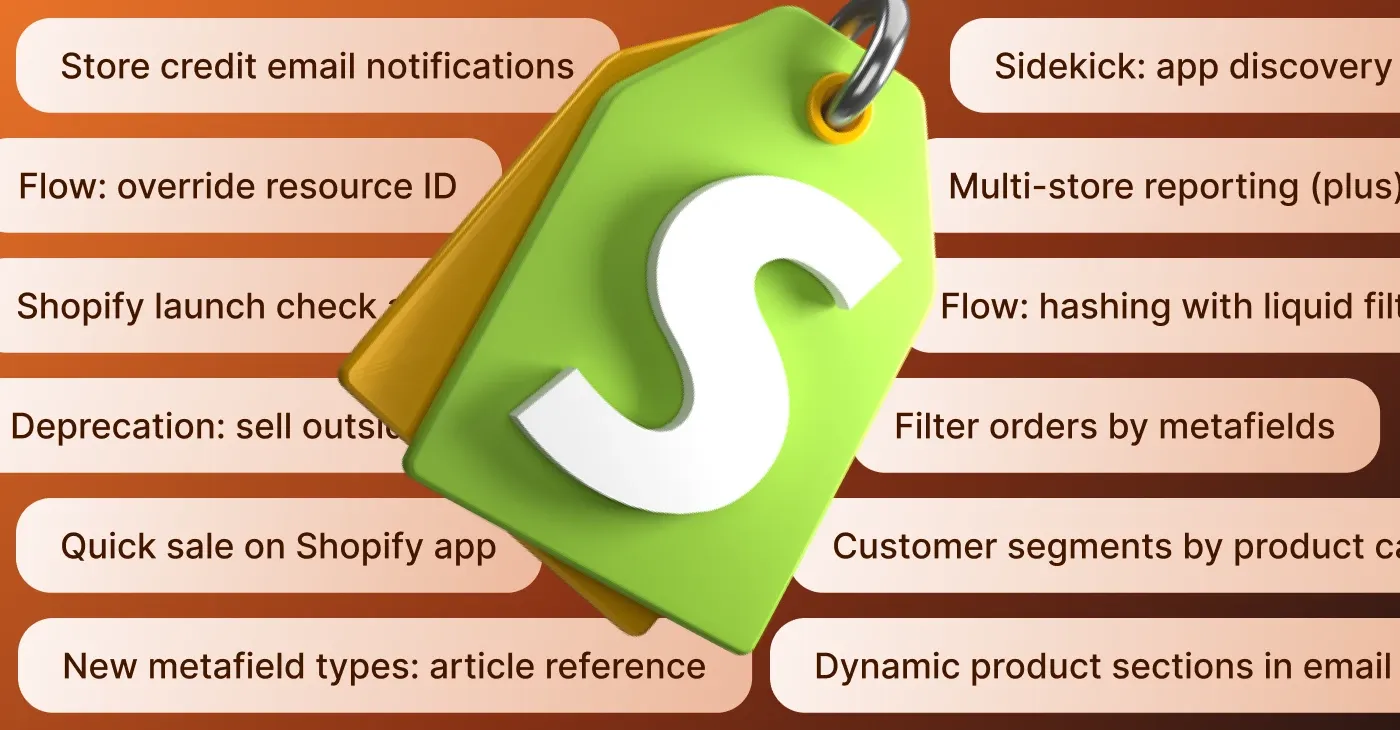
New Shopify features this month cover multiple areas of the platform, including apps and analytics, POS, Sidekick, Collective, and international selling. Let’s explore what’s new.
Build apps easily with the new Dev Platform
Shopify has launched the Dev Platform, a centralized platform where merchants and developers can manage apps and developer stores. It features direct metafield configuration, instant preview, and the ability to create dev stores at any level of Shopify, which simplifies the entire app lifecycle. It enables merchants to collaborate with reliable developers to deliver high-quality, up-to-date app experiences more efficiently.
Discovery and public price lists now global in Shopify Collective
Suppliers can now display catalogues, margins, ratings, and issue public price listings that retailers can directly import and sell their products. You can install the supplier app from the Shopify App Store:

Retailers can browse suppliers and view catalogs, including margins and shipping information, and immediately import products from public price lists without waiting for approval. You can install the retailer app:
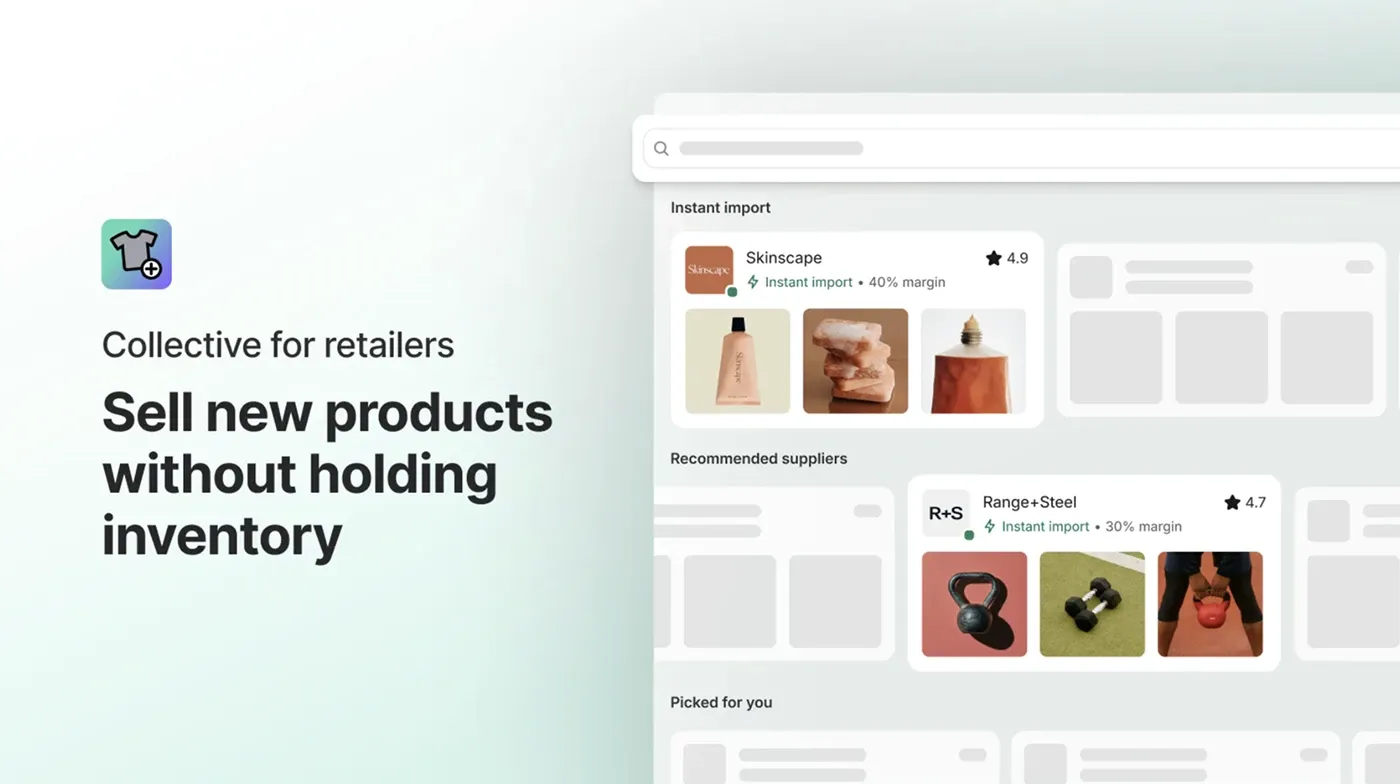
This update enables international selling and helps merchants reach new markets more effectively than ever, as it simplifies cross-border collaboration. Expanding the reach of Shopify Collective enables both suppliers and retailers to scale globally with minimal friction.
We provide Shopify internationalization services to help merchants take full advantage of these global opportunities.
Use any HID barcode scanner with Shopify POS
POS has also added HID (keyboard-mode) scanners, including many USB models that were previously unable to operate with iOS devices. It provides access to thousands of scanners, including both cost-effective and advanced hardware, with simplified installation. The update offers retailers greater freedom in hardware choices to expand their business on their own terms.
Voice mode arrives in Sidekick
Sidekick is Shopify’s AI assistant that can now be used for voice interactions. You can even chat with Sidekick and receive spoken replies, allowing you to get advice without interrupting your workflow. Currently available in English on desktop (with mobile and more languages coming soon), this feature is another step forward in AI-powered support for merchants.
If you’re interested in exploring how AI can further streamline your store management, check out our guides on Shopify AI tools and AI-powered Shopify store builders that can boost productivity and reduce manual work.
Sidekick fullscreen mode
A full-screen format provides merchants with more space to engage in long-term, AI-driven conversations with Sidekick. The expand button allows you to enter full-screen mode, or you can do so by clicking the Sidekick icon, pressing Shift, or by navigating to /sidekick in your admin. This mode will be particularly convenient for dealing with intricate tasks or reviewing large amounts of information.
Shopify Launch Check app for pre-launch validation
The new Shopify Launch Check app is even more straightforward to use, allowing you to launch a store in under two minutes by scanning your setup and providing AI-driven recommendations. You will receive customized tips based on store data, ensuring that everything is optimized to maximize conversions before going live.
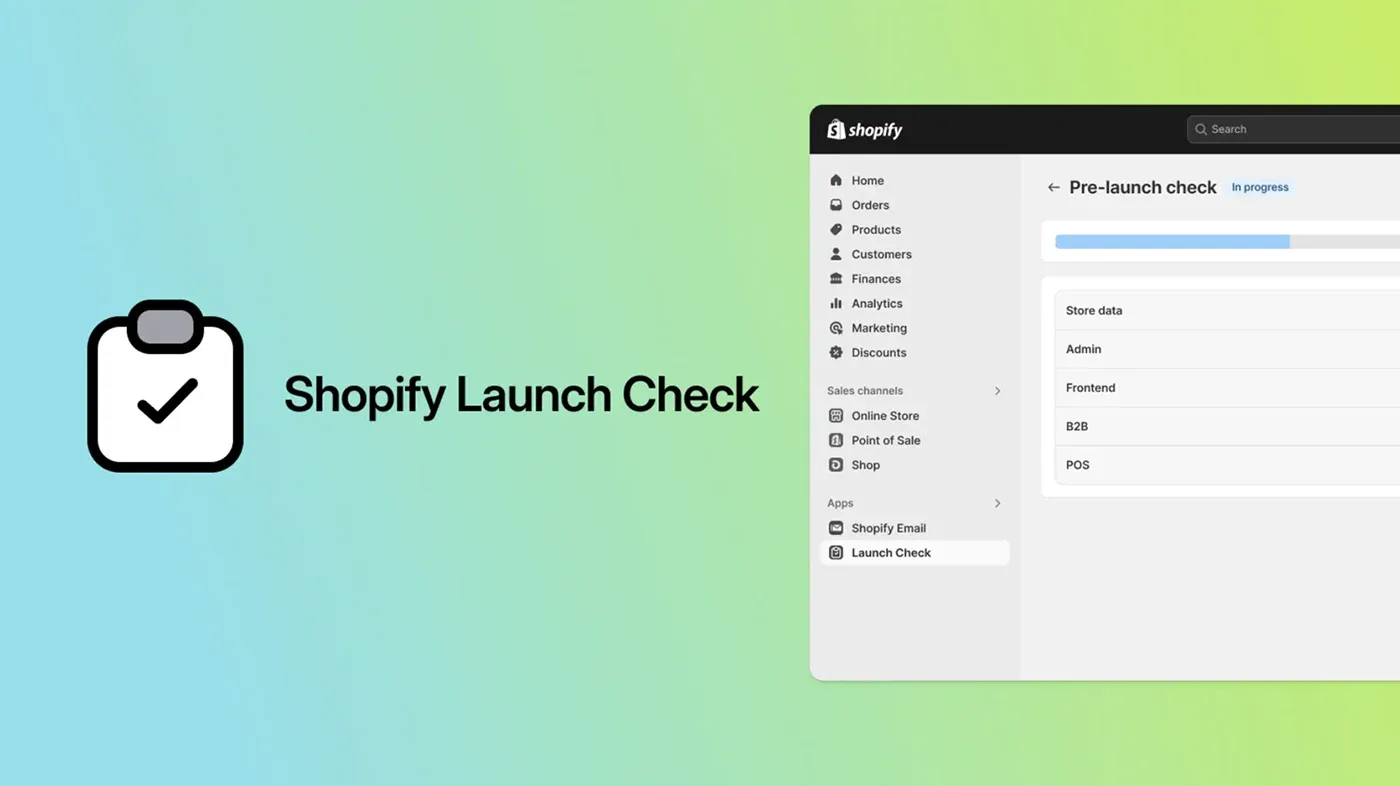
Customer notification for store credit
When issuing store credit, you can now send a notification email to customers that displays the new credit limit and the overall balance. In Settings > Notifications, the email template can be customized. This update enhances transparency and motivates customers to return and redeem their credit.
Multi-store reporting in Analytics
Multi-store reporting is also available to organizations with multiple stores. Merchants can track sales and orders, as well as key metrics, across all stores in a single dashboard. They can compare data by region or brand and analyze their performance in multiple currencies. This saves time and provides a better picture of organizational performance.
Flow: Override default resources in actions
Flow actions that require a resource ID (such as updating product status) can now have the resource manually specified when multiple IDs are available or a custom ID has been generated. To achieve even more flexibility in automations, you can enter a variable or the GID of a specific resource.
Native exchanges for Facebook (Meta) orders
Merchants can now create exchanges directly for Facebook orders, eliminating the need for manual processing of returns and new orders. It is also possible to charge return fees. This enables merchants to retain more revenue, facilitate transactions easily, and provide a smoother returns experience for customers.
Flow: Secure your workflows with Liquid filters for hashing
Sensitive data can now be hashed directly in your Flow automations with Liquid filters sha1, sha256, and md5, as well as hmac_sha1 and hmac_sha256. This enables the secure management of API keys, customer emails, and other sensitive data when integrating Flow with external APIs. For hmac filters, include your authentication code as a parameter.
Filter Orders by Order Metafields
In the order list, merchants can now filter the orders by up to five custom metafields. This simplifies the process of finding orders that have special handling requirements or unique business attributes. Saved views allow for quick access, integrating smoothly into existing order management workflows.
‘Quick sale’ now available on the Shopify app for instant in-person transactions
Quick sale is used to process in-person transactions with no hardware required. Add items through search, barcode scanning, or by typing in custom amounts, and accept payments instantly either with Tap to Pay or cash. It also supports discounts, taxes, and receipts via email or SMS, making it perfect for pop-up stores, markets, or informal selling situations.
Find, compare, and install apps with Sidekick
The discovery of the apps is made simpler with Sidekick, which uses the request or description of what is needed in the chat. You will see tailored app suggestions, compare them, and start installing right in the chat. The quicker, more trustworthy experience will soon replace guided search and app comparison in the App Store.
Segment customers based on the product categories they’ve browsed or bought
Product browsing and purchase categories are now included in customer segmentation. Customers you can target include "customers who have purchased Beauty products within the last 3 months" or "customers who have visited the Sports and Outdoors section". Segments automatically roll up under parent categories, hence assuring broader campaign coverage. This feature is built in directly with Shopify Email, discounts, and marketing tools.
New metafield definition types for articles
Since API 2025-10, there are two additional types of metafields:
article_reference: Cite one article in your online store.
list.article_reference: Cite several articles in a list. These new forms widen the possibilities of your connection and organization of content in your storefront.
Products can no longer be sold outside of configured shipping zones
The possibility of selling consignments beyond configured shipping areas is no longer supported. This means that customers can now only purchase items located in fulfillment locations that serve their shipping zone. This avoids overselling, minimizes manual order corrections, and offers a more stable checkout process.
Shopify Email now supports dynamic product sections
Best sellers or most recent products are now automatically displayed in Shopify Email at the time of send. The dynamic sections of products increase engagement, personalize emails, and generate income without requiring human intervention.
Customize return and exchange receipts in POS
The Shopify POS now offers fully customizable return and exchange receipts, offering the same design flexibility as sales receipts. With the Liquid template editor or visual editor, you can create branded layouts to showcase return policies, promotional offers, or other relevant details to customers. Include logos, social media handles, and other brand elements to give it a professional appearance. This update will ensure consistency throughout the customer journey, from initial sales to returns and exchanges.
DDU now captures sales tax for registered destinations
Taxes will now be calculated for merchants using the Duties and Import Taxes calculator in countries where merchants are registered to pay tax, even where duty collection is not enabled. Previously, the sales tax in such cases was omitted, and the merchant's registration was simply disregarded.
To make sure that your sales tax is not calculated on international orders where there is no duty collection, you need to remove your tax registration in that country. This ensures that there is no contravention of local tax regulations and also avoids discrepancies in customer invoices.
Support for Market pricing in Draft Order customer checkouts
Today, customers can change their shipping address during checkout with a Draft Order, and depending on your market settings, product prices may vary. This improvement will enable customers to benefit from Market-specific prices in Draft Order checkouts.
To avoid the problem of changing product pricing during Draft Order checkouts, you can lock product pricing before sending the invoice or checkout link to the customer.
Flexible top items in reports
Shopify introduced the ability to set the number of items displayed in Analytics reports. Merchants now have the option to select the number of top items to be displayed in charts and tables. Additional items can be categorized as "Other" and either not shown or presented in full.
In this update, the default limit of five items is eliminated, making it particularly valuable for large merchants who wish to conduct two-dimensional analysis. It provides a more in-depth understanding of key business drivers, enabling organizations to focus on what matters most.
Get expert help with Shopify updates
If you want to implement the newest Shopify features or need advice on your Shopify-based project, the DigitalSuits team will be happy to help you. As official Shopify partners, we have vast experience in Shopify development and Shopify Plus development, keeping up with the platform's constant updates. We can ensure that your store remains flexible, effective, and capable of growing with new features that Shopify has to offer. Contact DigitalSuits today for expert assistance.





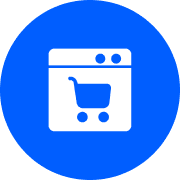




















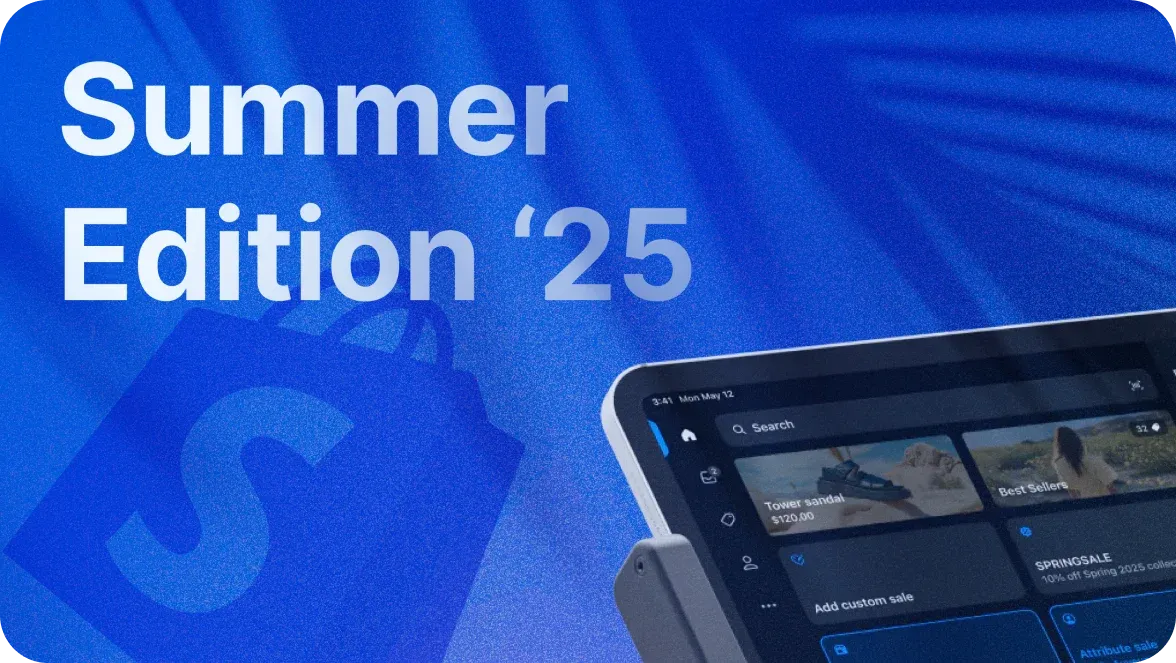
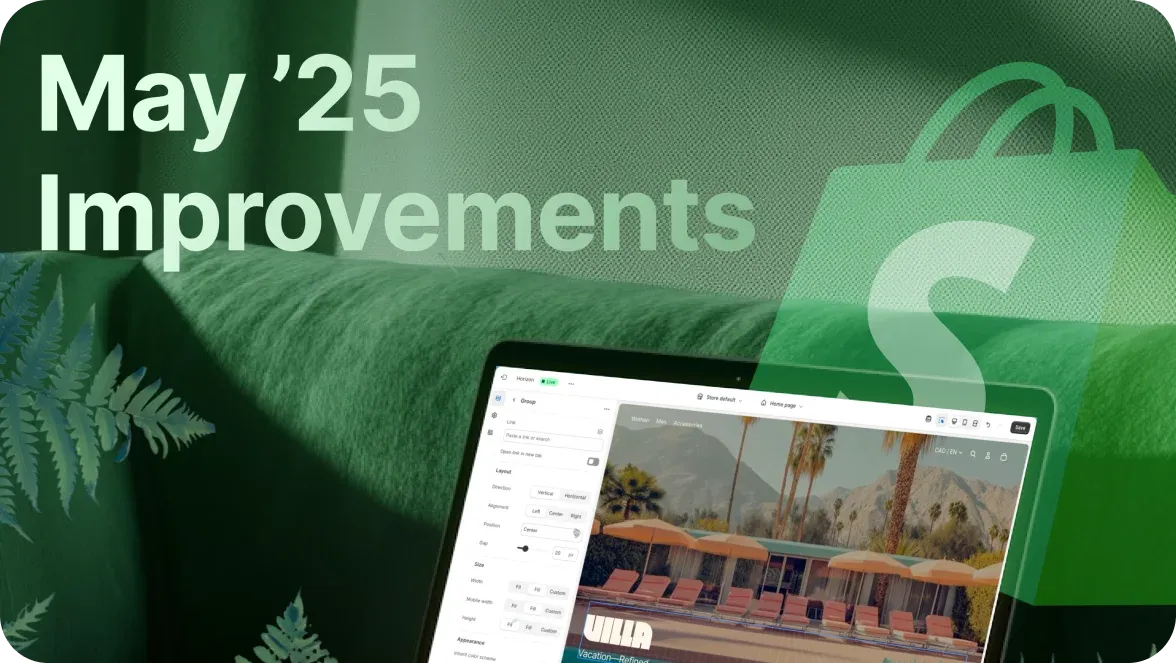
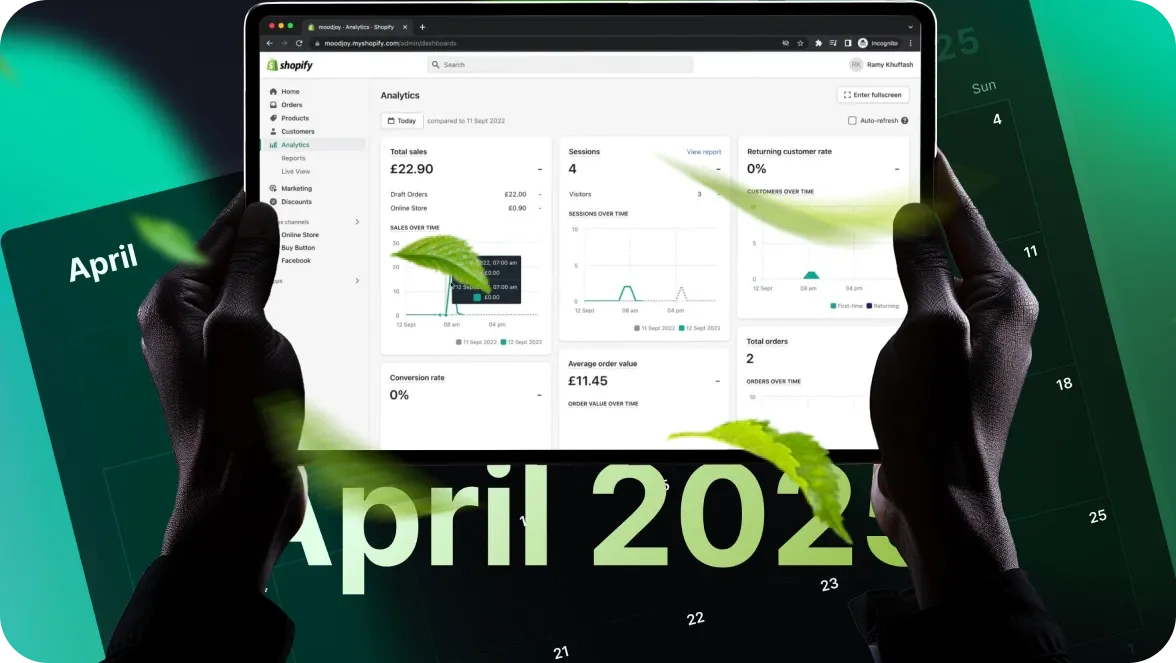






Was this helpful?
0
No comments yet